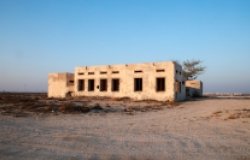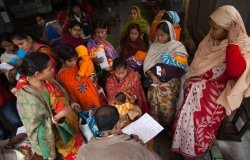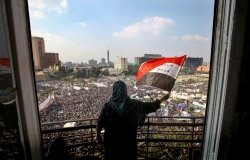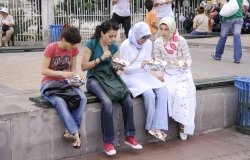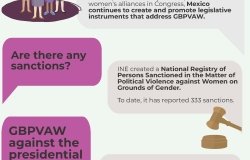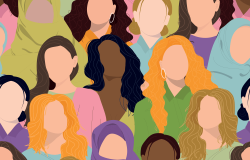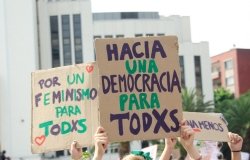Book Launch: Sisters in War: A Story of Love, Family, and Survival in the New Iraq
Christina Asquith, Former Public Policy Scholar, Woodrow Wilson Center; Zia Groosh Flossman, Former Correspondent, Iraqi Media Network, Baghdad; Manal Omar, Program Officer, Grant Program, United States Institute of Peace
Overview
On September 29, 2009, the Middle East Program of the Woodrow Wilson Center hosted a book discussion with author Christina Asquith, journalist and former Public Policy scholar, Woodrow Wilson Center, on her new book Sisters in War: A Story of Love, Family, and Survival in the New Iraq. She was joined by Zia Groosh, former correspondent, Iraqi Media Network, Baghdad and Manal Omar, Program Officer, Grant Program, United States Institute of Peace. Introductory remarks were given by Haleh Esfandiari, Director, Middle East Program, Woodrow Wilson Center, who chaired the event.
Asquith began the discussion by detailing her experiences in Iraq, motivations for writing her recent book, and outlook for the future of Iraqi women. Although Asquith arrived in Iraq intending to cover higher education, she refocused her attention on women once she recognized the paradox of women’s freedom in the country. Asquith came to realize that Iraqi women were liberated in the public sphere and workplace as professors, engineers and in other non-traditional roles yet often still subject to conventional social customs in the home, including arranged marriages. Asquith went on to talk about how women were used to fuel the cause for war in 2003. US foreign policy goals for Iraq during the previous administration included the liberation of Iraqi women to make an example for the region, much like the intended domino effect of democracy. At the start of the war, women had high hopes from these US promises. But while these promises faded and security concerns increased, women were caught in the middle and became increasingly fearful for their safety and lives. Despite these obstacles, women were able to organize politically to establish a 25 percent quota in parliament and campaigned to preserve the country’s personal status law. Asquith reiterated how much women in the region still need assistance, emphasizing the need not just for more money but for smarter and more effective programs.
Omar, who was featured in Asquith’s book, discussed women’s rights in Iraq before and after the start of the war. Highlighting the importance of women in Iraq, she stated “women are the barometer for what’s happening on the ground.” According to Omar, the large number of widows resulting from the war has reversed the cultural perception of “marriage as a safety net.” Instead, due to increasingly restrictive customs and laws, many of these widows are unable to access what is due to them because of widespread corruption and bureaucracy. The rise of Islamists and their influence in the country is seen by women as a bane on their safety and status. Omar portrayed 2007-2008 as the “dark ages” in Iraq because security and survival required foremost attention while many issues, including women’s rights, fell off the radar. In 2009, Omar described not a window but a “crack of opportunity” for women to again become politically active. She also discussed the lack of debate about core issues regarding Article 41 of the constitution, the Islamic law principle, which would take away the civil law option of the 1958 personal status code and subject women only to religious law under provisional courts. Though Article 41 could present a significant setback for Iraqi women, Omar indicated she was cautiously optimistic and stressed the need for a legal framework to protect women in the long-term.
Groosh, who was also featured in Asquith’s book, provided her personal account of growing up in Baghdad and working with Americans before fleeing the country under death threat. Groosh explained that she was targeted in Iraq because of her desire to control her own life and not conform to her society’s strict cultural norms. Iraqi women, according to Groosh, “are put in a pigeonhole” and told not to cross a line or face retribution in the form of harassment, kidnapping, torturing or killing. In addition to security concerns, Groosh described the economic problems and intensification of adherence to social norms for women after the war. Groosh also discussed the differences between her former life in Iraq and current life in the United States, conveying her desire for a better life for all Iraqi women.
Drafted by Kendra Heideman on behalf of the Middle East Program
Hosted By

Middle East Program
The Wilson Center’s Middle East Program serves as a crucial resource for the policymaking community and beyond, providing analyses and research that helps inform US foreign policymaking, stimulates public debate, and expands knowledge about issues in the wider Middle East and North Africa (MENA) region. Read more
Thank you for your interest in this event. Please send any feedback or questions to our Events staff.
